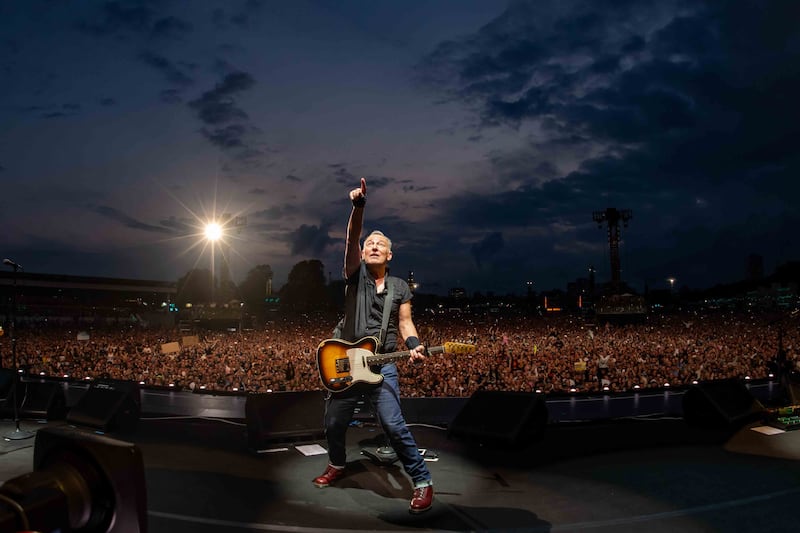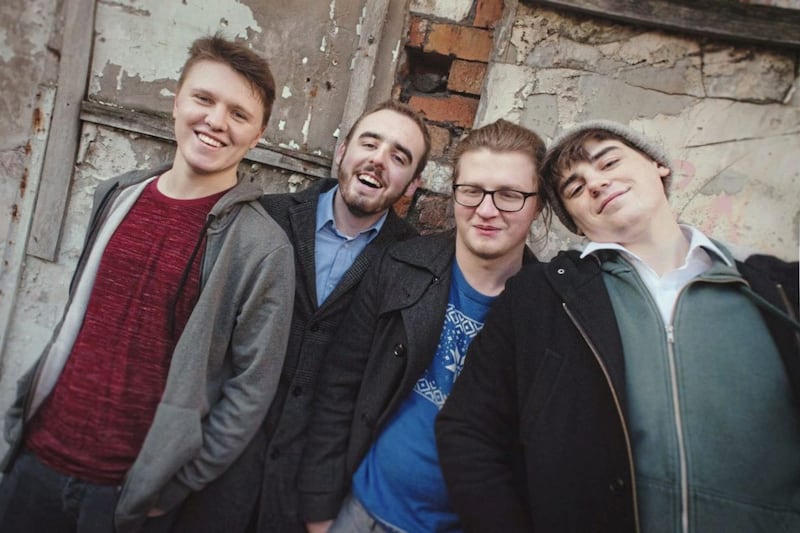EVERY so often, a band appears that gives a jolt to a particular musical tradition. In trad music, it was Planxty, Moving Hearts, the Bothy Band and Horslips who did it in the last century and what over time could be the 21st century version of the phenomenon is a Dublin-based quartet called Lankum, the artists formerly known as Lynched.
More in the tradition of The Pogues and The Dubliners, brothers Ian and Daragh Lynch had been playing together for maybe 17 years before they sat down with Cormac Mac Diarmada and Radie Peat, whom they knew from playing at many sessions in and around Dublin, with a view to becoming a band, as Ian explains.
“In the past, we had asked Radie and Cormac to join us for a song or two and it worked so well because we were very much in tune with what each other was going towards musically, the material we were interested in and the kind of sound we wanted to make, so Lynched sort of happened very quickly.”
Lynched’s four-part harmonies, murder ballads, anti-recruiting songs. humorous ditties and their own material marked them out as something special in the Dublin folk scene. Their debut release, Cold Old Fire, met with universal acclaim and won an appearance on Jools Holland’s Later.
Their repertoire in particular drew a lot of attention. A lot of the songs that Lankum play wouldn’t be terribly well-known so where does the band mine their material – in great libraries, in second hand bookshops in the granny’s attic?
“Well, I’ve never found anything in my granny’s attic,” laughs Ian, “but there is a fabulous resource in the Irish Traditional Music Archive here in Merrion Square and it has really, really great collections of all types of material, from old cylinder recordings of Patsy Tuohey to videos and digital collections and some of the lesser-known printed collections, ballad sheets and all the rest of it and I’ve spent many, many hours looting around in there!
“Quite a few songs that have appeared on our albums and if we haven’t found them in there first hand, we would have found them elsewhere and gone into ITMA to hear other versions of that same song with maybe different verses or new parts of the song.
“There is also the National Folklore Collection here in Dublin, where I have been working for the past number of years, they also have a great collection, with lots of field recordings from collectors going around in the 1970s, stuff that hasn’t been digitised yet. So there are treasure troves all over the place,” he says.
However, Lankum are also following in the former footsteps and cycle routes of earlier song collectors by just going around the country and listening to people singing, especially to older singers.
“Luckily, we don’t have to cycle up mountainsides with cylinder recorders,” laughs Ian.
Lankum’s sound is like no other, with their gorgeous four-part harmonies not usually a part of the Irish singing tradition, which is more usually solo and unaccompanied. It is definitely more of a Scottish thing and during the English folk revival, you had groups like the Watersons, Swan Arcade and the Copper Family but Ian also sees bit of it here too in the singing of the Keane Sisters from Galway and our own Len Graham and the late Joe Holmes, people who have influenced all four members of Lankum.
That curiosity and openness and authenticity can be heard on the band’s second album, Between the Earth and the Sky, replete with songs that will stay in your head forever.
In Flann O’Brien’s The Third Policeman, the theory goes that if you sit long enough on a bicycle, you will turn into one. When listening to the first track on the new album, What Will We Do When We Have No Money, I wondered if Radie Peat had turned into a chanter on the uilleann pipes, with her voice sounding almost like the instrument itself, with just a drone for accompaniment.
It is quickly followed by the rollicking Captain William Bailey and an acapella version of The Peat Bog Soldiers, a song written by Johann Esser and Wolfgang Langhoff in 1933 when they were imprisoned by the Nazis in Börgermoor concentration camp.
The rest is an intriguing mix of the self-penned (Ian’s song Déanta in Éirinn) and bits and pieces picked up on the band’s global musical treasure hunt.
There is now a really vibrant folk and trad scene in Dublin but Ian is keen not to take credit for the latest nouveau vague of young traditional and folk musicians now playing in the capital, with the likes of Ye Vagabonds, Landless and Skipper’s Alley building up big followings.
“There is a singing club that has been going for about the past 35 years or so called An Góilín and there would be a lot of really well-known singers who would be regulars there. Christy Moore would call in occasionally but in recent years, there has been a very exciting development where a lot of younger people have become interested in singing songs,” he explains.
“There is a session called The Night Before Larry Got Stretched and that’s mainly for people under 30 years old coming along and singing songs from a Dubliners' song to a 29-verse ballad [laughs] but it has really taken off and there are similar sessions popping up all over the place.”
Good times for the tradition, then.
:: Lankum are playing in the Duncairn Arts Centre tonight with another astonishing artist, Lisa O’Neill. Needless to say, the show is sold out.








